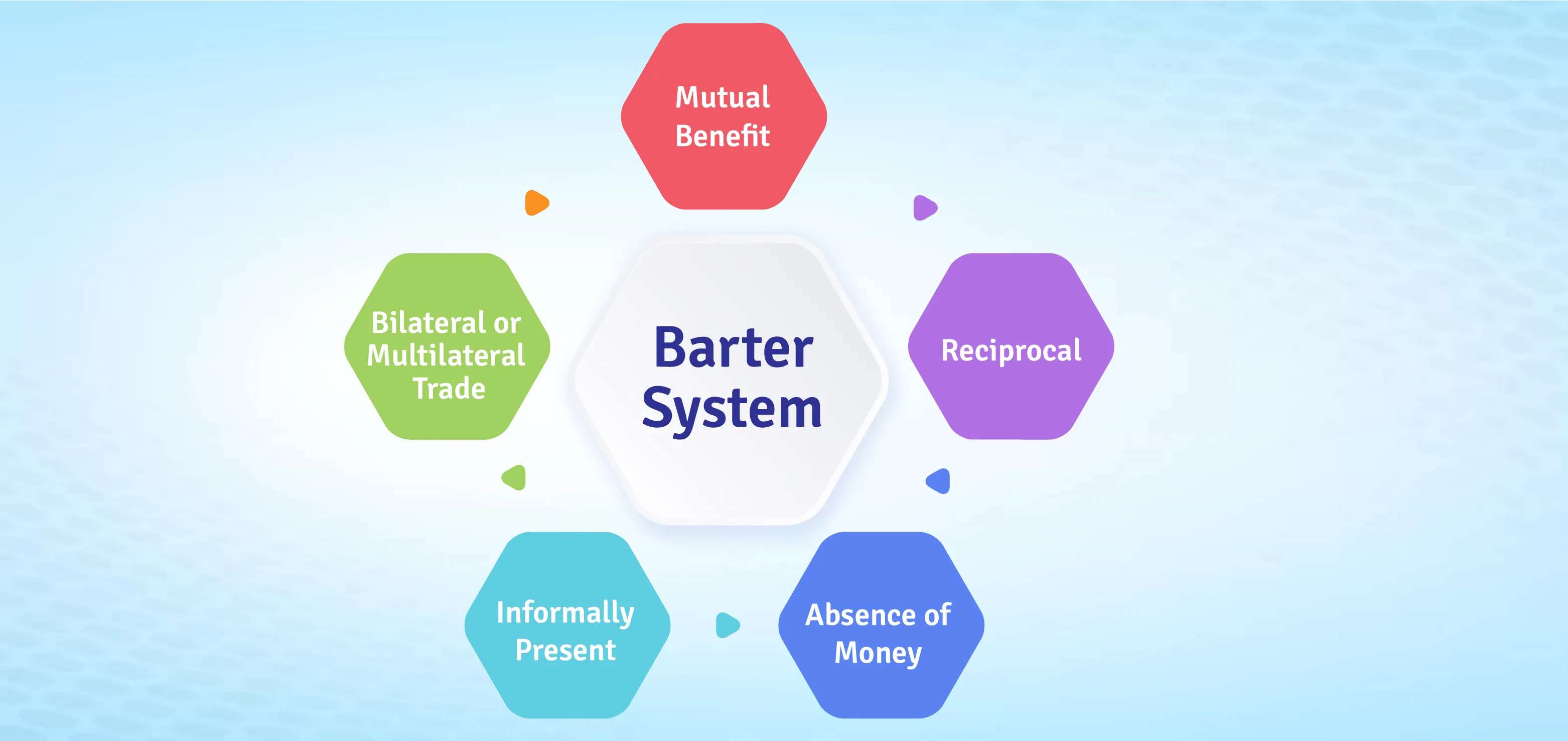Bartering System Assignment Help
A bartering system is a method of exchange where goods or services are directly traded for other goods or services without the use of money as an intermediary medium. In essence, it's a system of reciprocal exchange that predates the advent of modern currency. At its core, a bartering system relies on the principle of mutual benefit, where individuals or communities swap goods or services based on their respective needs and surpluses.
What makes bartering intriguing is its versatility and adaptability across various contexts and historical periods. From ancient civilizations to contemporary societies, bartering has been a fundamental aspect of economic interaction. In many instances, it has served as a vital means of survival, especially in times of economic instability or scarcity.
In a bartering system, participants negotiate the terms of exchange based on the perceived value of the goods or services being traded. This process involves assessing factors such as quality, quantity, and demand to arrive at a mutually satisfactory agreement. However, one of the inherent challenges of bartering is the subjective nature of value assessment, which can sometimes lead to disagreements or disputes.
Despite its challenges, bartering continues to persist in modern society, albeit in more specialized or localized forms. With the advent of technology, online platforms and bartering networks have emerged, facilitating exchanges on a larger scale and connecting individuals with diverse needs and offerings. Thus, while traditional monetary systems dominate global economies, the bartering system remains an intriguing and resilient alternative for those seeking alternatives to conventional exchange mechanisms.
Which fundamental ideas form the basis of the bartering system?
The bartering system, a fundamental concept in economics, relies on several key ideas that form its basis. At its core, bartering entails the exchange of goods or services directly for other goods or services without the involvement of money. This system hinges on the principles of mutual benefit and the satisfaction of needs through trade. Academic writing service often explore these foundational ideas within the context of economic theory and historical analysis.
One fundamental idea underpinning the bartering system is the concept of double coincidence of wants. This concept posits that for a barter exchange to occur, both parties must possess goods or services that the other desires, leading to a match in preferences. Another essential notion is the absence of a universally accepted medium of exchange, such as currency. Instead, bartering relies on the relative valuation of goods or services by the parties involved.
Moreover, the bartering system underscores the importance of negotiation and communication in facilitating exchanges. Participants must engage in discussions to establish fair terms and ensure equitable trades. Additionally, the system promotes resourcefulness and creativity as individuals seek to meet their needs through non-monetary means. Overall, these fundamental ideas collectively shape the dynamics of the bartering system, offering insights into its mechanisms and implications for economic exchange.
What distinguishes the bartering method from conventional financial exchange?
In the realm of last minute assignment writing help, understanding the distinctions between the bartering method and conventional financial exchange is crucial. Bartering, a system predating the advent of currency, relies on the direct exchange of goods and services without the intermediary of money. This stands in stark contrast to conventional financial exchange, where currency serves as a universally accepted medium for transactions. The essence of bartering lies in its simplicity; individuals or communities exchange goods or services based on mutual needs and values, fostering a sense of cooperation and interdependence. Urgent assignments on this topic necessitate a grasp of these fundamental differences.
In a last-minute assignment scenario, highlighting the uniqueness of bartering becomes essential. Unlike conventional financial exchange, bartering doesn't involve complex financial institutions or regulatory frameworks. Instead, it operates on the basis of trust and negotiation, emphasizing personal connections and community bonds. Moreover, the bartering method often thrives in situations where traditional currency might not be readily available, such as in times of economic instability or resource scarcity. Understanding these distinctions not only enriches academic discourse but also offers practical insights into alternative economic systems. Thus, in urgent assignment situations, grasping the essence of bartering can provide a nuanced perspective on economic principles and practices.
Could you give instances of historical bartering systems that were successful?
Throughout history, numerous successful bartering systems have emerged, showcasing the resilience and adaptability of this ancient method of trade. In the realm of UK Essay Writing, understanding these historical precedents sheds light on the evolution of economic systems and trade practices. One prominent example is the Silk Road, which facilitated extensive bartering between East and West for centuries. This network of trade routes allowed for the exchange of silk, spices, precious metals, and other goods, fostering cultural exchange and economic prosperity across vast distances.
Similarly, the indigenous cultures of the Americas, such as the Inca civilization, utilized sophisticated bartering systems long before European contact. In these societies, goods like maize, cacao, and textiles were exchanged through intricate networks of trade routes and marketplaces, sustaining their economies and social structures.
Moreover, BookMyEssay experts provide during periods of economic instability, bartering often thrived. For instance, the Great Depression of the 1930s saw communities across the globe resorting to bartering as a means of survival, exchanging goods and services to meet their basic needs when traditional currency was scarce.
These instances demonstrate the enduring viability of bartering systems throughout history, highlighting their adaptability to diverse cultural, economic, and social contexts.







 3 Bellbridge Dr, Hoppers Crossing, Melbourne VIC 3029
3 Bellbridge Dr, Hoppers Crossing, Melbourne VIC 3029




